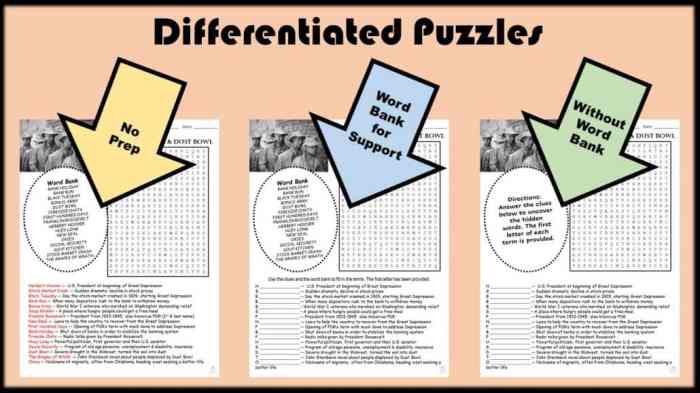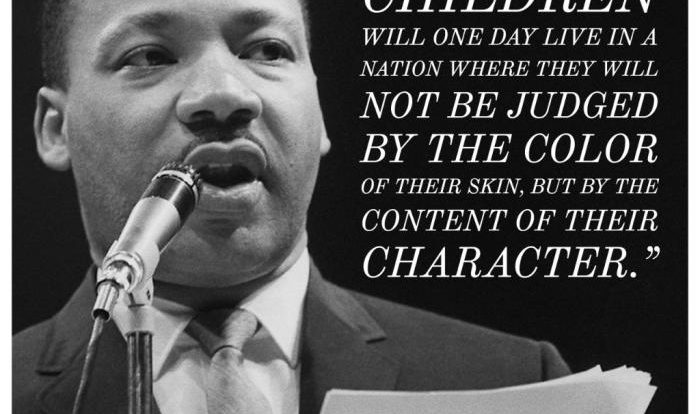The Great Depression Review Crossword Puzzle is an engaging and educational tool that immerses learners in the complexities of the Great Depression, one of the most devastating economic crises in American history. Through interactive puzzles and insightful content, this resource provides a comprehensive understanding of the economic factors, social consequences, government responses, and historical significance of this pivotal event.
This crossword puzzle delves into the economic turmoil that gripped the nation, exploring the industries and sectors that were severely impacted. It examines the psychological toll the Depression took on individuals and families, as well as the government’s response through the New Deal programs.
By completing the crossword and engaging with the accompanying content, learners gain a deeper appreciation for the challenges and lessons learned during this transformative period.
Economic Conditions
The Great Depression was a period of severe economic decline that began in the United States in the 1930s and spread to other countries around the world. The economic factors that contributed to the Depression include:
- Overproduction: The 1920s saw a period of rapid economic growth, which led to an oversupply of goods and services.
- Stock market crash: The stock market crash of 1929 led to a loss of confidence in the financial system and a decline in investment.
- Bank failures: The stock market crash led to a loss of confidence in the banking system, which resulted in a wave of bank failures.
- Deflation: The Great Depression was also characterized by deflation, or a decrease in the general price level.
The Great Depression had a devastating impact on the American economy. Industries such as manufacturing, construction, and mining were severely affected. The unemployment rate reached 25% at the height of the Depression.
Impact of the Stock Market Crash
The stock market crash of 1929 was a major turning point in the Great Depression. The crash led to a loss of confidence in the financial system and a decline in investment. This, in turn, led to a decrease in economic activity and an increase in unemployment.
Social Consequences
The Great Depression had a profound impact on American society. The rise of unemployment led to widespread poverty and homelessness. Families and communities were torn apart as people struggled to make ends meet.
Psychological Toll of the Depression
The Great Depression also had a significant psychological toll on individuals. The constant fear of unemployment and poverty led to anxiety, depression, and other mental health problems.
Government Response
The government’s response to the Great Depression was initially slow and ineffective. However, the New Deal programs introduced by President Franklin D. Roosevelt helped to provide relief to the unemployed and stimulate the economy.
Effectiveness of the New Deal Programs, The great depression review crossword puzzle
The New Deal programs had a mixed record of success. Some programs, such as the Civilian Conservation Corps, were very effective in providing relief to the unemployed. However, other programs, such as the National Recovery Administration, were less successful.
Historical Significance: The Great Depression Review Crossword Puzzle

The Great Depression was a watershed moment in American history. It led to a loss of faith in the free market system and a greater role for government in the economy.
Lessons Learned from the Depression
The Great Depression taught us several important lessons about the dangers of unchecked capitalism. These lessons include:
- The importance of government regulation
- The need for a social safety net
- The dangers of deflation
Q&A
What is the Great Depression?
The Great Depression was a severe worldwide economic depression that began in the United States in the 1930s. It was the twentieth century’s longest, deepest, and most widespread decline.
What caused the Great Depression?
The Great Depression was caused by a combination of factors, including the stock market crash of 1929, bank failures, and a decline in consumer spending.
What were the effects of the Great Depression?
The Great Depression had a devastating impact on the United States and the world. It caused widespread unemployment, poverty, and homelessness.
How did the government respond to the Great Depression?
The government responded to the Great Depression with a series of programs known as the New Deal. The New Deal included measures to provide relief to the unemployed, stimulate the economy, and reform the financial system.
What are the lessons of the Great Depression?
The Great Depression taught us that the government has a role to play in preventing and mitigating economic crises. It also taught us the importance of a strong financial system and a diversified economy.

